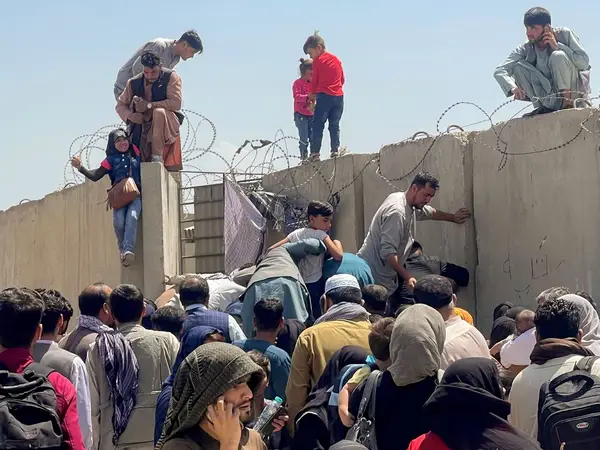Iran has proposed that Muslim states establish a joint fund to help stabilize Afghanistan and prevent a serious crisis from impacting other regional countries.
Addressing the 17th Extraordinary Session of the OIC Council of Foreign Ministers in Islamabad, Pakistan, on Sunday, Iranian Foreign Minister Hossein Amir-Abdollahian said that the collective interests of the entire region depends on security and stability in Afghanistan.
Contributions by neighboring countries along with their humanitarian assistance are among the most urgent requirements for supporting the Afghan people, he added.
Tehran’s chief diplomat criticized the international community's “indifference” toward the situation of Afghan refugees in Iran, saying that Iran has tried to keep its borders open. Amir-Abdollahian noted, "During the past 40 years, the Islamic Republic of Iran has been hosting millions of Afghan refugees and immigrants" while it “has not received any international aid for this particular purpose so far.”
Despite Amir-Abdollahian’s claim, UNHCR, the UN refugee agency has been aiding Afghan refugees in Iran, including health insurance for 120,000 people. Many governments, such as South Korea, Germany and Italy have also made contributions. Seoul so far has donated $30 million dollars through the United Nations.
Elsewhere during his speech, Amir-Abdollahian also called on foreign banks to release billions of dollars of Afghanistan’s assets that were frozen after Taliban took over the country.
In October the US Treasury announced that it is holding firm on its freeze of Afghan central bank reserves to deny access to the Taliban. Since August, the Taliban have been trying hard to get hold of almost $10 billion worth of assets, which are largely kept in the US.
Iran’s top diplomat stated that sustainable calm in Afghanistan is only possible through an inclusive and effective government in which all ethnic and religious groups would be present. Pointing to Afghanistan’s empty seat in the conference, he also expressed hope that the country will be able to send its representatives to the next OIC summit.
On the sidelines of the conference, Amir-Abdollahian held a meeting with Pakistan’s Prime Minister Imran Khan, in which he stressed the necessity of sending humanitarian aid to Afghanistan as soon as possible.
“The Islamic Republic of Iran supports dispatch of humanitarian aid to Afghanistan regardless of political issues… To this end, while keeping its borders open, the Islamic Republic of Iran is ready to cooperate with all countries to get aid to people of Afghanistan,” he said during the meeting.
Envoys from 57 Muslim nations as well as representatives from the United Nations and international financial institutions, plus the United States, the European Union and Japan attended the two-day summit aimed at relieving the humanitarian crisis in Afghanistan.
Tehran insists that despite an economic crisis due to US sanctions, it has accepted more than 300,000 Afghan refugees following the collapse of the government in Kabul.
However, the International Organization for Migration said in November that Iranian and Pakistani authorities have sent back more than one million Afghan refugees this year, including more than 28,000 people only in the last week of October. “The majority were deported, returning to Afghanistan often broke and broken, in need of health support, food and rest,” said an IOM statement.
The United Nations refugee agency’s appeal to support Afghans fleeing to neighboring countries has called for nearly $300 million to help up to 515,000 people that may flee before the end of the year. About $136 million of the total appeal funding is needed to support Afghans in Iran.
According to the Norwegian Refugee Council, 4,000 to 5,000 Afghans flee across the border to Iran every day. It says some 3.6 million Afghans reside in Iran, although only 780,000 are recognized as refugees. Most other Afghans are considered economic migrants who have been an important workforce in Iran.
